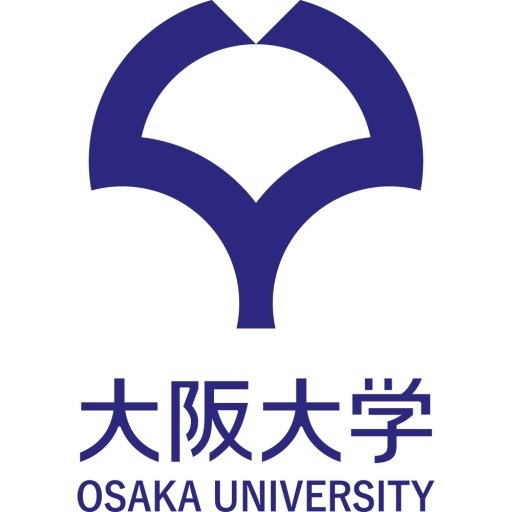Photos of university / #oxford_uni
The Bachelor of Arts in Human Sciences at the University of Oxford offers a comprehensive interdisciplinary exploration of human beings, integrating insights from the social sciences, humanities, and biological sciences. This distinctive three-year degree program is designed to provide students with a deep understanding of what it means to be human, examining the complex interactions between biology, culture, psychology, and society. Students will engage in critical analysis of topics such as human development, social behavior, cultural diversity, and scientific approaches to understanding human life. The curriculum emphasizes rigorous academic research, encouraging students to develop their own hypotheses and interpret data within a broad contextual framework. As part of the program, students will have the opportunity to participate in advanced seminars, tutorials, and research projects, fostering intellectual independence and analytical skills. The interdisciplinary nature of Human Sciences prepares graduates for a diverse range of careers, including research, public policy, healthcare, education, and social services. Students will benefit from the university’s exceptional faculty expertise and access to cutting-edge resources and research centers. The program also provides foundational knowledge for those wishing to pursue postgraduate studies or careers that require a broad understanding of human behavior and societal issues. Throughout the course, emphasis is placed on ethical considerations, cultural sensitivity, and the application of scientific methods, ensuring that graduates are equipped to address complex issues facing contemporary society. With its unique combination of theoretical knowledge and practical application, the Human Sciences degree at Oxford aims to produce graduates who are insightful, ethically aware, and equipped to contribute meaningfully to a rapidly changing world.
During years 1 and 2 your work is divided between lectures (about ten a week) and tutorials (one or two a week). In addition, some practical experience in genetics, physiology, demography and statistics is offered in certain terms. Computers are used in the teaching of quantitative methods. In the third year the tutorial and class requirement is reduced to allow more time for option papers and students’ research for their dissertations.
| 1st year | |
|
Courses Five compulsory courses are taken:
|
Assessment First University examinations:Five written papers; satisfactory practical record |
| 2nd year | |
|
Courses Five courses are taken:
|
Assessment The Human Ecology course is assessed by an extended essay written in the final term of the second year and a presentation given in the first term of the third year. |
| 3rd year | |
|
Courses
|
Assessment Final University examinations: |
- Attestat o Srednam Obrazovanii (Certificate of Secondary Education) would not be sufficient for candidates to make a competitive application. If your qualification is listed as being insufficient to make a competitive application to Oxford, then you will need to undertake further study if you wish to apply.You could take British A-levels (the British Council may know where you can take A-levels in your country), the International Baccalaureate (IB), or any other qualifications listed as acceptable on this page. The first year of a bachelor's degree from another university could also be an acceptable alternative.
- IELTS: overall score of 7.0 (with at least 7.0 in each of the four components)
- TOEFL (paper-based): overall score of 600 with a Test of Written English score of 5.5
- TOEFL (internet-based): overall score of 110 with component scores of at least: Listening 22, Reading 24, Speaking 25, and Writing 24.
- Cambridge English: Advanced, also known as the Certificate of Advanced English (CAE): grade A if taken before January 2015, or a score of at least 185.
- Cambridge English: Proficiency, also known as the Certificate of Proficiency in English (CPE): grade B if taken before January 2015, or a score of at least 185.
- English Language GCSE, or O-level: grade B (for IGCSE, please see below)
- International Baccalaureate Standard Level (SL): score of 5 in English (as Language A or B)
- European Baccalaureate: score of 70% in English.
Hill Foundation Scholarship
Russian nationals wishing to study for a second undergraduate degree.
Palgrave Brown Scholarship
Students must be ordinarily resident in and/or educated in the following countries:
Albania; Armenia; Azerbaijan; Belarus; Bosnia and Herzegovina; Bulgaria; Croatia; Czech Republic; Estonia; Georgia; Hungary; Kazakhstan; Kyrgyz Rep.; Latvia; Lithuania; Macedonia; Moldova; Montenegro; Poland; Romania; Russia; Serbia; Slovakia; Slovenia; Tajikistan; Turkmenistan; Ukraine; Uzbekistan.
The Human Sciences program at the University of Oxford offers a multidisciplinary approach to understanding the complexities of human life, society, and culture. This innovative course integrates perspectives from social sciences, humanities, and biological sciences to provide students with a comprehensive understanding of human behavior, social structures, and cultural phenomena. The curriculum emphasizes critical thinking, analytical skills, and research methods, preparing students to analyze contemporary issues through multiple disciplinary lenses. Students engage with topics such as anthropology, psychology, sociology, history, and philosophy, enabling them to develop a nuanced perspective on human diversity and commonalities. The program is designed to equip graduates with the intellectual tools necessary for careers in academia, public policy, social research, healthcare, and beyond. Teaching is delivered through a combination of lectures, seminars, tutorials, and independent research projects, fostering a close-knit academic community where students can actively participate in scholarly discussions. The course offers specializations that allow students to tailor their studies according to personal interests and career goals. Assessment methods include essays, presentations, examinations, and a dissertation. The university's extensive resources, including libraries, archives, and research centers, support student learning and project development. Oxford’s Human Sciences program emphasizes interdisciplinary collaboration and aims to generate insights that contribute meaningfully to understanding human society and addressing global challenges.








